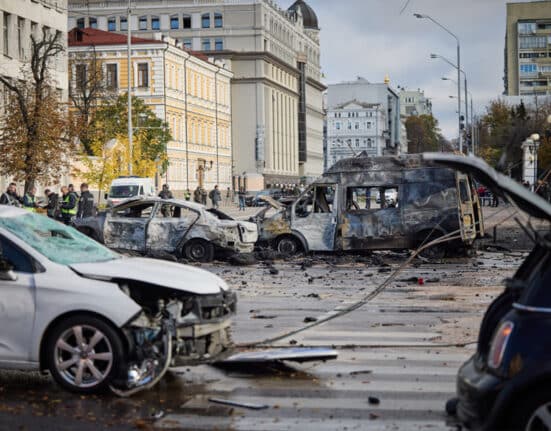Editor’s note: Speech of Ambassador Generoso De Guzman Calonge as Guest of Honor and Speaker at the Christmas Celebration by the Philippine Military Academy East Coast Chapter held at Almas Temple Shrine, Washington, D. C., on Sunday, December 18, 2022.
President Jimenez, Ladies and Gentlemen:
Thank you for the invitation to speak before you today. It is a privilege to join you as I can claim to have witnessed some of the early meetings of this organization through the personal invitation of former Defense Secretary Voltaire Gazmin who was then the Defense and Armed Forces Attache’ while I was serving in the Political Section at the Embassy here in Washington. One of those gatherings was in the Great Falls Picnic Area, way back in the 90s.
When Rey Regis informed me that the PMAAAI would like to invite me as a Speaker on this occasion, my reply was a query on what the Alumni Association would want me to talk about. I was astonished at the breadth and dimension of the topics that he wanted me to cover. He said that it would be nice if I can talk about the South China Sea, Overseas Filipino Workers worldwide, the Russia/Ukraine war, the situation in Iraq and the United Arab Emirates, and my assignment in Israel. So many books have been written about each of these topics and I do not believe that I can do justice to all of them, and to you, in a 20-30 minute discussion. To the extent that this forum is a learning environment, I will try.
What I intend to do here is to discuss two basic and overarching principles of international relations that you can use to analyze world events. These will be your tools to view political affairs as applied by nations and their respective leadership. They will become obvious to you as you watch CNN, Fox News, the BBC, and others, as they portray developments across the continents. In your readings on current events, these analytical implements might also come in handy. If there is a question and answer portion, I can respond to the specific issues in the list of subjects that Rey asked me to discuss. It would be a more focused interaction that way.
The first principle is called the security dilemma. This principle says that when one state performs acts that its leadership believes enhances its national security, other states, especially the neighboring ones, might interpret the acts as tending to reduce their own security. The latter states then tend to match the actions of the former state who, then escalates its measures further to ensure its security, or so it thinks. This series of actions and counteractions goes on and on until cooler heads, through diplomatic negotiations, intervene and seek to reduce arms production or capability on both sides to inflict serious destruction. The best example is the nuclear arms race. It was moderated only after agreements were reached in the Strategic Arms Limitation Talks (SALT) talks as well as in the medium range missile reduction agreements.
This principle of the security dilemma was quite evident in Russian behavior towards Ukraine. After the collapse of the Berlin Wall, Ukraine was denuclearized. However, it appeared to Russia that the Western borders, represented by NATO member countries, were being extended closer to Moscow. Western European countries and the United States were not averse to Ukrainian membership in NATO. To the Western alliance, this is an improvement in security; to Russia, it is a degradation of its own national security. Hence, the classic security dilemma operated once more. The NATO office in Moscow was viewed with suspicion and the Russian-speaking parts of Ukraine were encouraged to be autonomous, if not independent. In the aftermath of this tit-for-tat, Crimea was taken over by Russia. Ukraine had to seek Western assistance. The war erupted in the Russian-inspired part of Ukraine. The rest is history.
A University of Chicago Professor by the name of John Mearsheimer predicted the war in Ukraine in 2015, or perhaps even earlier, by the tenor of his scholarship as a realist theoretician. Essentially, he said that the insecurity of Russia over the approach to its borders by Western powers using Ukraine as a proxy, would result in undesirable consequences, politically and militarily. We are witnessing what he had predicted.
Closer to home, the operation of the security dilemma was evident during the Manila-Kuala Lumpur crisis over the Philippine claim to Sabah in the 1960s. I am sure that some of you were already in the uniformed services or other branches of the Philippine government when it happened. The late President Marcos had the good intention of improving the security situation of the Philippines by keeping alive the claim to Sabah. I will not go into the merits of the claim here. Suffice it for me to say that, as a neighbor, Malaysia must have viewed with concern the strengthening of the Philippine position with respect to that territory, which approximates the size of Mindanao, with rich natural resources. The security dilemma posed by the perception of the territorial claim made Malaysia conscious of its defense needs to the point of eventually overtaking the capability of the Philippines. Under the theoretical assumptions of the security dilemma, a subsequent round should have followed, at least from the Philippine side. The result of the next stage should have been Philippine attempts at enhancing its defense capability to a level that is at least equal to that of its neighbor’s. But lack of economic resources halted the Philippine drive towards modernization. In this particular case, the security dilemma did not result in a spiral towards a highly visible arms race simply because the Philippines could not match its neighbor.
On the South China Sea, the Philippine installations, especially its capable runway (at that time), on Pagasa Island must have been viewed with serious concern by China and Vietnam in the mid-70s. We recall that China and Vietnam already had a naval engagement in the Paracels, an area to the north of the West Philippine Sea. China’s Hunan Island is the headquarters of its SCS fleet. The construction of air defense and naval port facilities in Mischief Reef, within the Philippine EEZ, resulted in insecurity for the Philippines. The prevention of the approach by Philippine vessels to the lagoon of the Scarborough shoal had the same effect. All these developments did not improve the national morale of the Philippines, as the citizenry viewed the Chinese moves with hopelessness. Under the classic operation of the security dilemma principle, the Philippines had to improve its defenses to meet the threats. But it is short of those measures because of its lack of resources. It is resorting to its alliance with the US, under the Mutual Defense Treaty, to correct the imbalance against its security. The response to the security dilemma is externally sourced, i. e., through an alliance, instead of an internal mobilization of its resources.
The second principle that I wish to discuss with you is the Thucydides Trap. This principle says that the two highest nations in terms of power will find themselves in a tense situation, or even war, at some point in their history. The term was coined by Graham Allison, a Harvard historian, to account for the friction that usually arises among the top two countries with the strongest capabilities. There have been many times that the Thucydides Trap has manifested itself in history. An early recorded one was the rise of Athens against Sparta. Before the first World War, German economic, industrial, and military growth was occurring at an exponential rate. This threatened the dominant powers like the UK and France. Not long after, World War I erupted.
After the Second World War, the United States emerged as the most powerful nation as it came out unscathed in the War. But Britain still had the hangover of an imperial power. When Britain, France and Israel jointly attacked Egypt over issues arising out of the Suez Canal, the British pound deteriorated in value, compelling British authorities to seek an economic rescue plan from the United States. President Eisenhower refused and showed that the United States was by then the dominant power of that era. Eisenhower’s decisive and forceful action forced Britain, France and Israel to withdraw their forces from the Suez Canal.
I hope that the illustrations in real life provided by international events have pointed out some explanation for these two basic principles, which, really, can be used as our devices for analyses. You now have a foundation for viewing developments on the world stage. The security dilemma and the Thucydides Trap appear very elementary, even commonsensical. But they are powerful instruments for studying current affairs.
If you wish to explore these theoretical tools, I suggest that you read, among others, Dr. Henry Kissinger’s book on Leadership. I am sure that you will appreciate his work and the enlightenment he provides in foreign relations.
I am now ready to take your questions.
Ambassador Gene Calonge served as Philippine Ambassador to Israel from 2011 to 2014, and to Iraq from 2020 to 2022. He is a member of the Philippine Bar, a graduate of the UP College of Law in 1985. He earned an LL. M. from Harvard in 1988. He finished his Ph. D. in Development Administration from the Philippine Christian University in 2022. His academic interest is in the realist school of international relations.









